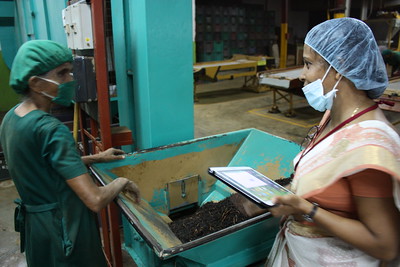Laws and red tape limit the growth of Sri Lanka’s IT industry
A brain drain is negatively impacting development, with 25,000 professionals leaving the country just in the past year. While the industry is changing rapidly, developing skills takes time. Last year the industry added US$ 2.1 billion to the national economy, employing about 40,000 people.
Colombo (AsiaNews) – Outdated laws, rules and regulations are hindering the growth of the Information Technology and Business Process Management (IT-BPM) industry in Sri Lanka.
Stringent constraints and limits to development feed a brain drain, this according to Manusha Samarawickrama, CEO of a leading company in the sector, who spoke to AsiaNews.
“From 2022, about 25,000 IT-BPM professionals have left Sri Lanka. They have migrated with families and have settled in foreign countries, so Sri Lanka will not receive their services nor their revenue. There is also a skills gap,” he explained.
“At times, junior software engineers, including trainees recruited by our organisation, cannot be mentored properly. Most of them struggle with their work. As the industry is changing rapidly, we need people who have the required IT skills, which cannot be developed overnight. At times, we cannot accept new orders from foreign companies due to this issue.”
The IT-BPM industry is Sri Lanka's fourth-largest source of foreign exchange earnings. In 2022, it injected US$ 2.1 billion into the country’s economy and does not depend on imports, except for computers and cloud services for specific Software as a Service (SaaS) applications.
It employs about 150,000 people (80,000 of whom are taxpayers), with indirect job opportunities for another 250,000 people.
“Flexibility on policies and procedures is another major challenge faced by the industry,” notes Samarawickrama. “Most often, it is very difficult to reach out to government institutions to get procedures such as approval and accreditation.”
In this regard, he cites talks with an Australian investor who wanted to set up an office in Sri Lanka that could create more than 300 jobs.
“They asked for a letter guaranteed by the government, so, there will not be any disruptions. We had to go behind ministers and bureaucrats to get a letter; yet, to date, we have not received it.”
It is hard to get authorisations for possible investors, which is why, it is important "to initiate reforms to labour laws” and “support the growth of this industry” where half of the workforce is made up of women.
Chaminda Wijewardene, senior software engineer at a US-based IT company with offices in Colombo, explains that the Sri Lanka Association for Software Services Companies (SLASSCOM) plays the role of growth catalyst.
With 200 member companies that employ 40,000 employees, it sets “the priorities and goals of the industry”. The target is to “generate US$ 5 billion in revenue, create 200,000 direct jobs and establish a thousand IT-BPM startups by 2025".
SLASSCOM has faced numerous challenges and limitations, while trying to encourage investor confidence against a complex background.
For some foreign investors, Sri Lanka’s infrastructure is not adequate, which has an impact on operating costs and return on investments while prices are rising, including electricity.
13/06/2022 14:30
03/10/2025 14:09
17/10/2022 17:59







.png)










